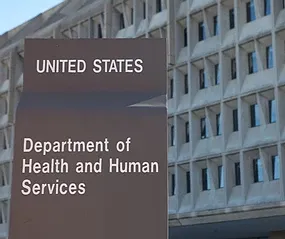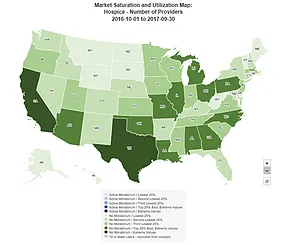Proxy wRVU for Oncology-Related Services in the Middle of Recent $34 Million Settlement
Darcy Devine • May 19, 2017
Proxy wRVUs need to be used with care. Many organizations utilize proxy wRVUs to compensate physicians for professional activities that are not recognized by the Medicare Physician Fee Schedule and do not have Work RVU values. In the case described below, the oncologists were credited with a proxy wRVU that, according to the plaintiff-relator, did not reflect the relative time and intensity associated with the service being provided.

On May 18, 2017, the Department of Justice (“DOJ”) announced a $34 million settlement with two Springfield, Missouri healthcare providers: Mercy Hospital Springfield (“Mercy Hospital”) and Mercy Clinic Springfield Communities (“Mercy Clinic”). According to the DOJ’s press release, the settlement resolved allegations that the providers submitted false claims to the Medicare Program for chemotherapy services rendered to patients referred by oncologists. Per the press release, the oncologists’ compensation formula improperly took into account the value of their referrals of patients to the infusion center operated by the Defendants. Link to DOJ press release.
The relator in this case was Viran Roger Holden, M.D., PhD. Dr. Holden is a medical oncologist who was employed by Mercy Clinic from 2005 until May 2015. According to the complaint filed by Dr. Holden on June 30, 2015, compensation paid to Mercy Clinic and its oncologists did not meet fair market value and commercial reasonableness requirements. Dr. Holden alleged in his complaint that the problematic compensation formula was implemented after Mercy Clinic transferred ownership of its infusion center to Mercy Hospital in 2009. The transfer was very beneficial to the system and resulted in $10 million more in infusion revenues each year.
Prior to the transfer, Mercy Clinic oncologists were paid under a collections-based compensation model. Before and after the transfer, they expressed concerns to Mercy Clinic and Mercy Hospital management that the transfer would lower physician incomes. Dr. Holden's complaint alleges that Management reassured the physicians that they would be made “whole”. Subsequent changes to the physician compensation plan included the addition of a new work RVU (“WRVU”) for drug administration in the hospital. The physicians were credited with this new WRVU each time they sent a patient to the infusion center for treatment.
According to Dr. Holden, the services covered by the new WRVU, drug administration in the hospital, required that the physicians be immediately available when patients were receiving infusion services. However, because the infusion center and the physicians’ practices were just down the hall from one another, the physicians never had to leave their practices to get credit for these services. Moreover, the new WRVU was 500% of the WRVU credited for in-clinic, active patient care services provided by the physicians. The complaint alleged that the new WRVU was not calculated based on physician work, clinical expense, or malpractice overhead, but rather was “solved for” by working backwards from a desired level of overall compensation.

CON Laws, Scope of Practice Restrictions, and Provider Non-Compete Clauses Targeted in New Trump Adm
On Monday, December 3, 2018, the Department of Health and Human Services (HHS) – in collaboration with the Departments of the Treasury and Labor, the Federal Trade Commission, and several offices within the White House – released a report detailing recommendations for improving choice and competition in the healthcare industry.











